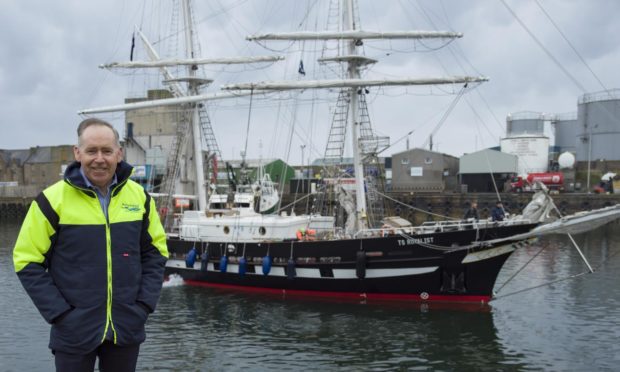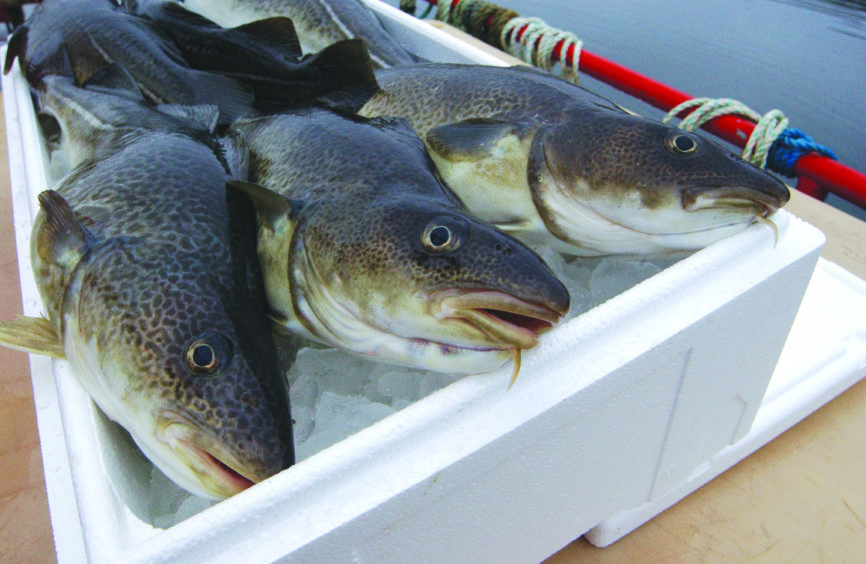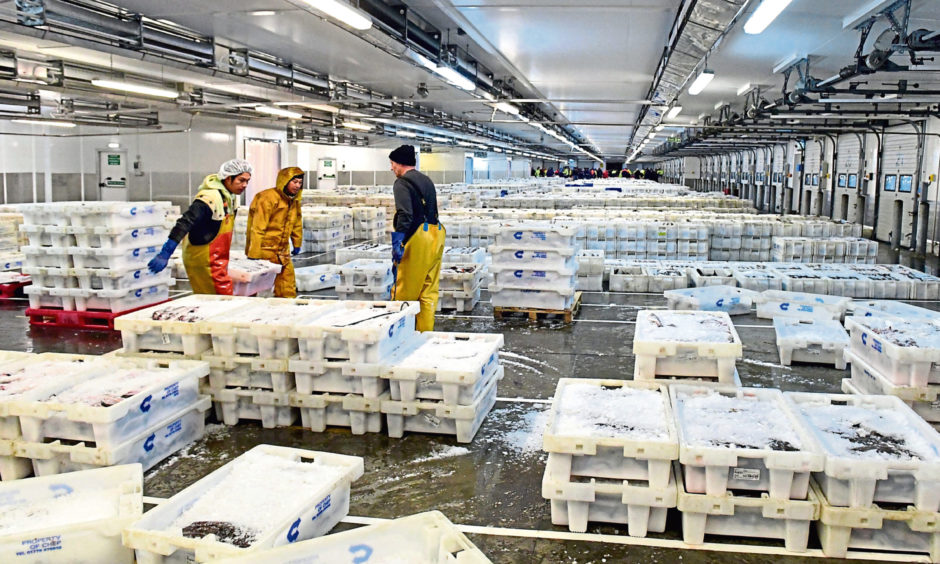Peterhead Port Authority (PPA) chief executive Simon Brebner had plenty of reasons to be cheerful as he looked ahead, rather than back, while announcing better-than-expected annual results.
The Blue Toon harbour is ideally placed to cash in on a wave of opportunities from the energy transition, offshore renewables and carbon capture and storage, he said.
He and the rest of the trust port’s management team are also mulling a potential joint bid, together with Aberdeen Harbour Board, Aberdeen City Council and Aberdeenshire Council, for regional “greenport” status.
Greenports
Scottish Government proposals for greenports are a net-zero-focused adaptation of plans for eight freeports, offering customs benefits and tax relief, south of the border.
Discussions are still at the feasibility study stage but a report by officials to the city council’s growth and resources committee today (May 11) backs the idea, saying it could create up to 22,000 jobs.
Mr Brebner said the next few weeks and months could deliver several new developments amid “exciting times” for the port, including moving forward with “memorandum of understanding” deals with a number of offshore wind developers looking to secure seabed rights in Crown Estate Scotland’s ScotWind leasing round.
He also reported good interest from potential operators of an export “hub” in Peterhead to speed up the transportation of perishable fish and other seafood to mainland Europe.
Through careful planning and fantastic support from our employees, and the wider port community of clients, users and suppliers, we have been able to report a much stronger trading year than we had anticipated.”
Simon Brebner, Peterhead Port Authority
Customs red tape has created log-jams at distribution facilities in the central belt since Brexit.
Fishing industry business at Peterhead Port has been hit by the double whammy of Covid-19 and Brexit, causing a slump in demand in key markets at home and overseas.
Mr Brebner said the post-Brexit Scottish seafood export delays seen earlier this year had slackened off to some extent but not gone away, while European markets including France, Spain and Italy were largely shut off due to Covid-19 lockdowns.
Fishing boats are spending less time at sea, with skippers using longer spells in port to attend to maintenance and repairs – biding their time until market conditions improve, he added.
Shellfish landings, despite export woes, are “substantially” up, compared with a year ago, while volumes for pelagic species – mainly mackerel and herring – are also stronger.
But white-fish tonnage is down by around 20% as that part of the industry continues to face fluctuating prices and other market challenges, Mr Brebner said.
PPA reported “a highly respectable” turnover of £12.5 million last year, down from £13.3m in 2019, despite the severe impact of the Covid-19 pandemic on operations.
Higher costs due to the outbreak drove pre-tax profits down to £2.23m in 2020, from £3.53m the previous year.
The overall value of fish handled through the port slipped to £190m last year, from a record £210m in 2019, on the back of much-reduced volumes and prices for white-fish.
And the gross weight of commercial shipping using the port annually fell to eight million tonnes last year, from 9.4m tonnes in 2019.
Under pressure
Mr Brebner said: “2020 was incredibly challenging, with Covid-19, a low oil price and uncertainty surrounding Brexit.
“However, through careful planning and fantastic support from our employees, and the wider port community of clients, users and suppliers, we have been able to report a much stronger trading year than we had anticipated.
“Looking ahead, the final Brexit agreement and the disruption to seafood exports it has caused, along with Covid-19 restrictions, mean the white-fish and shellfish sectors will remain under pressure for the foreseeable future.
“Within the energy sector, the oil price is starting to recover and operators are beginning to tackle the backlog of maintenance and investment offshore.”
He added: “In our continuous quests to improve the harbour infrastructure and operational capabilities, the port itself is pressing ahead with a series of substantial initiatives this year.”
These projects include work to refurbish and reinstate about 525ft of a retaining wall, along Alexandra Parade, which has been damaged and eroded since it was constructed in the 1980s.
This £5.5m project, involving the installation of rock armour up to 25,000 tonnes in weight, including around 300 large X-shaped blocks, will provide improved protection to vehicles on the roadway below, as well as the nearby fish market and other properties.
The work had to be postponed last year and a series of rock-filled containers was erected along the front of the fish market to provide temporary protection.
Net-zero ambitions
PPA is also driving ahead with its long-term plan for net-zero emissions, having secured European Maritime and Fisheries Fund cash for an all-electric utility van for harbour security and the transfer of staff, as well as an electric sweeper for quays and roads.
In addition, funding was gained for 30 sets of rubbish bins to be located around the fishing harbour, with green containers for recyclable waste and red ones for landfill material.
The board decided to impose a freeze on all port, vessel and cargo-related charges for 2021 in order to “assist customers and stakeholders in a much-needed path to recovery”.
Aberdeen Harbour Board names new chief executive
Vital funding for north harbours hit hard by Brexit
Sharp slump in export sales for Scottish food and drink icons


